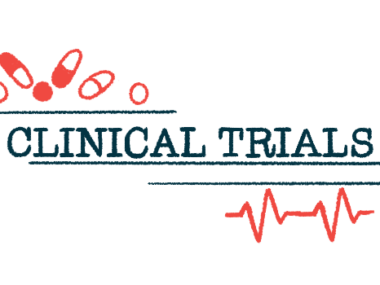FDA gives green light to trial of HBV treatment GIGA-2339
Phase 1 trial will test safety, tolerability in patients
Written by |

The U.S. Food and Drug Administration (FDA) has given Gigagen the go-ahead to start clinical testing of GIGA-2339, its experimental treatment for hepatitis B virus (HBV) infection.
The Phase 1 trial will test the safety and tolerability of multiple doses of GIGA-2339 in people with confirmed HBV infection, the cause of hepatitis B. The company did not provide further details on the trial’s design or locations.
“With over 1,000 different HBV-targeted antibodies in the mixture, GIGA-2339 is unlike any therapy currently in development,” Carter Keller, Gigagen CEO, said in a company press release.
“We look forward to initiating our trial in late 2024 and showcasing the clinical potential of our recombinant [lab-made] polyclonal antibody platform,” said Keller, who is also senior vice president of Gigagen parent Grifols.
Polyclonal antibodies comprise a collection of antibodies, or proteins produced by the immune system to fight infectious agents and other threats, that work on different regions of the same molecular target. Medications using monoclonal antibodies are aimed at only one region of the target.
HBV treatment cocktail
The FDA’s clearance “marks a significant milestone as part of Grifols’ commitment to develop transformative antibody drugs for infectious diseases,” Keller said.
Hepatitis B is a liver infection. The virus that causes it is spread via contact with bodily fluids. It’s one of the most common infectious diseases in the world: Roughly one in three people have been infected with HBV at some point.
Sometimes the body is able to clear the virus shortly after infection. In other cases — especially if the infection occurs in young children — it can develop into a chronic or long-lasting infection that can set the stage for serious problems like liver failure and cancer.
“Patients experiencing chronic HBV live with ongoing complications and commonly progress to [liver cancer] and cirrhosis [irreversible liver scarring],” Keller said.
Although there are vaccines that can prevent HBV infection and some treatments that can help manage it, hepatitis B remains a major global health concern. It’s estimated that there are nearly 300 million people living with chronic hepatitis B, and the virus is responsible for hundreds of thousands of deaths every year.
GIGA-2339 is made of a cocktail of more than 1,000 lab-made polyclonal antibodies against HBV, trying to mimic the immune response from people vaccinated against this virus. The antibody mixture covers most or all HBV variants.
In mouse models, it’s been shown to be able to neutralize and clear HBV’s DNA and proteins.
“Through this unique mechanism of action, GIGA-2339 has the potential to clear viral particles and activate the immune response to provide functional cure for people living with HBV,” Gigagen said.







